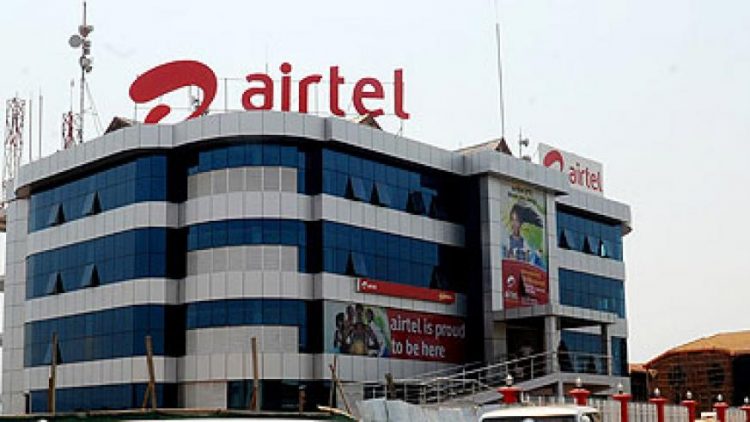Airtel Nigeria, the second-largest telecommunications operator in the country, has unveiled ambitious plans to significantly ramp up its capital expenditure in 2025, aiming to double its investment compared to previous years. This strategic move is primarily driven by the company’s commitment to accelerate the rollout of its 5G network and expand mobile coverage to underserved rural communities across Nigeria. The substantial increase in investment will fuel a comprehensive network upgrade, encompassing the deployment of new cell sites, expansion of the existing fiber-optic backbone infrastructure, and enhancements to current infrastructure using high-capacity radios. Furthermore, Airtel Nigeria intends to leverage the advanced capabilities of the 2Africa submarine cable to bolster data capacity across its network, ensuring a more robust and reliable service for its customers.
This aggressive investment strategy underscores Airtel Nigeria’s dedication to the country’s technological advancement and its determination to bridge the digital divide. Dinesh Balsingh, the CEO of Airtel Nigeria, emphasized the company’s long-term vision, stating that the investment reflects their deep commitment to Nigeria’s future. Recognizing the importance of reliable connectivity for economic growth and social development, Airtel aims to make access to the internet an everyday reality for more Nigerians, particularly those in underserved regions. This aligns with the broader national objective of promoting digital inclusion and leveraging technology to drive economic progress. The company, a subsidiary of India’s Bharti Airtel, currently serves a substantial customer base of 57.67 million subscribers, placing it second only to MTN Nigeria in market share. This significant investment comes on the heels of a 50% tariff hike implemented earlier in the year, a move for which Airtel is actively working to rebuild customer trust.
Airtel Nigeria’s 5G network, launched in January 2023, currently operates in Lagos, Ogun, Abuja, and Rivers states. Utilizing the 3.5GHz spectrum band, the network offers faster speeds and lower latency, significantly enhancing the user experience. The company further complements its 5G service by leveraging the 2600MHz spectrum to augment capacity and improve overall performance. This multi-spectrum approach ensures a robust and reliable 5G experience for users. As part of its comprehensive infrastructure development plan, Airtel is also constructing a state-of-the-art data center in Lagos under its Nxtra by Airtel brand. Located in the prestigious Eko Atlantic development, this facility, which commenced construction in early 2024, is poised to become Nigeria’s largest data center upon completion. This strategic investment in data center infrastructure reflects Airtel’s commitment to supporting the growing demand for data-driven services and applications in Nigeria.
The network upgrade strategy aligns with a landmark infrastructure sharing agreement signed between Airtel Africa and MTN Group in March 2025. This collaborative approach aims to optimize resource utilization, reduce deployment costs, extend network coverage to remote rural areas, and enhance overall service quality across Africa. By pooling resources and expertise, the two telecommunications giants aim to accelerate the development of robust and reliable network infrastructure across the continent. This collaboration marks a significant step towards bridging the digital divide and facilitating greater access to connectivity in underserved regions.
Despite the significant progress in expanding telecommunications infrastructure in Nigeria, large portions of the country, especially rural regions, remain unconnected or underserved. This digital divide stems from several interconnected factors, including limited infrastructure development, affordability challenges for consumers, and low digital literacy rates. Addressing these challenges is crucial to achieving inclusive economic growth and ensuring that all Nigerians can benefit from the opportunities offered by the digital economy. The lack of reliable internet access hinders access to education, healthcare, financial services, and other essential services, particularly in remote areas. Bridging this gap is therefore a top priority for the Nigerian government and the telecommunications industry.
The Nigerian telecommunications sector as a whole is witnessing a surge in investments aimed at upgrading network infrastructure. In 2025, operators across the industry have placed equipment orders worth over $1 billion with Chinese manufacturers, signaling a renewed commitment to network modernization and expansion. This significant investment marks a return to robust capital expenditure following a period of financial constraints within the industry. However, despite the substantial investment, the ordered equipment has yet to arrive in the country or clear customs procedures. This delay highlights the logistical challenges and regulatory hurdles that can impact the timely implementation of network upgrade projects. The successful deployment of this new equipment is crucial for realizing the full potential of these investments and delivering enhanced connectivity to Nigerian consumers.


